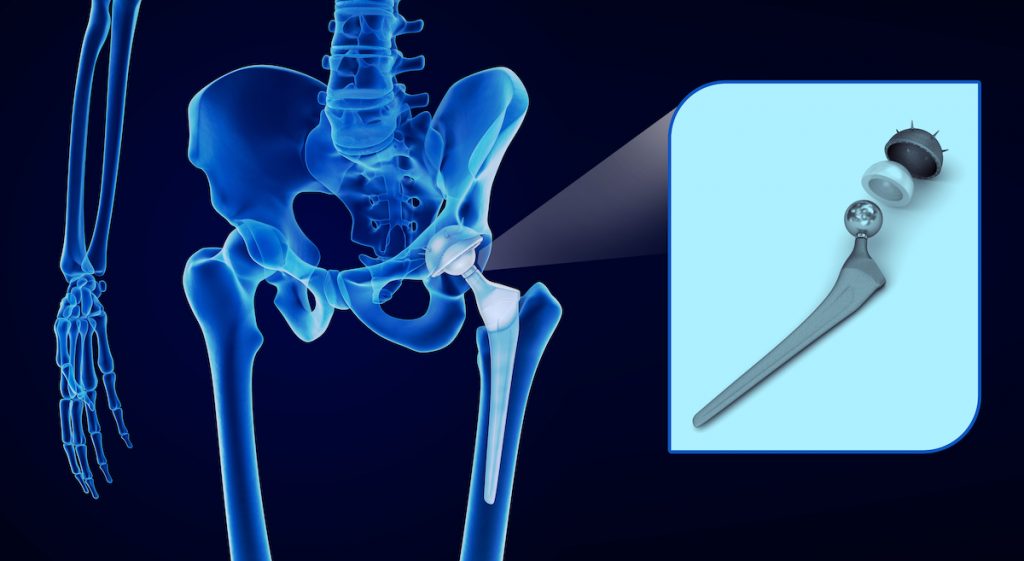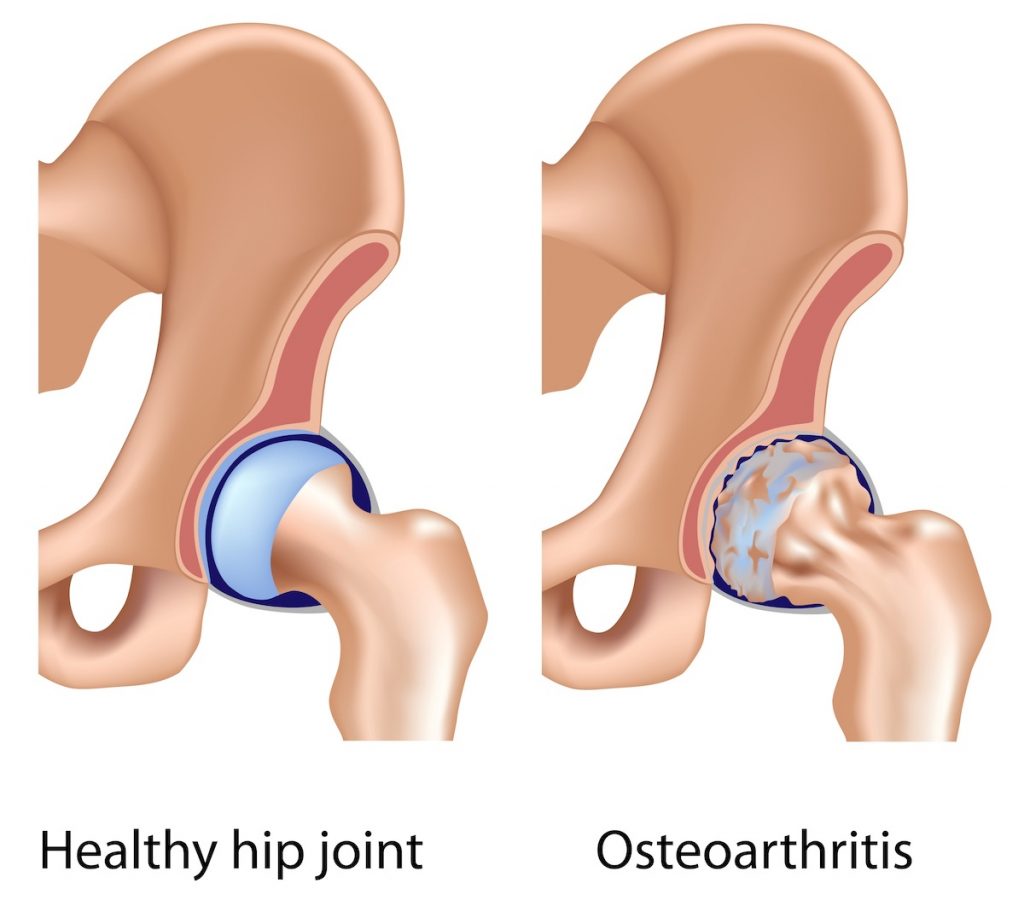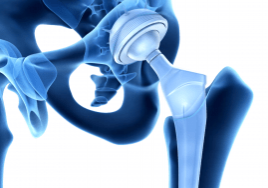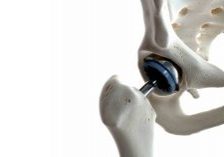For individuals suffering from chronic hip pain and mobility issues, everyday tasks can turn into painful or impossible ones. Hip replacement surgery may resolve these symptoms and restore mobility in individuals—relieving the pain and getting them back on their feet. How do you know if it's time for you to discuss surgery? We'll share a few telltale signs.
What is hip replacement surgery?
Hip replacement, formally known as total hip arthroplasty, is a surgical procedure to replace the worn cartilage and damaged bone with new prosthetic components. These new components provide a smooth joint surface and prevent the painful articulation caused by osteoarthritis.
The hip joint is a ball-and-socket joint. The socket, known as the acetabulum, which is part of the pelvic bone is replaced with a metal cup and plastic liner. The ball, known as the femoral head, is removed and replaced with a metal stem in the femur, and a metal or ceramic head is then fitted. The new femoral head is brought back into place in the new acetabulum and the new joint is complete and can glide smoothly.

Here are six signs that it might be time to talk to your doctor about your options:
1. Severe pain that isn't resolved with medication or conservative treatment methods
Severe and chronic joint pain is often one of the first signs you have that the joint is deteriorating. The pain may make it difficult to do daily tasks and even sleep. Additional signs include pain even with a walking aid or limping when walking.
2. Stiffness in the hip when walking
Another indication that a hip replacement might be needed is stiffness in and around your hip. Stiffness reduces the range of motion you previously had making it more difficult to move. Trouble extending your legs to walk, bending over to grab something, and not being able to balance while holding onto something are all signs of degeneration of the cartilage and you should contact a doctor.
3. Difficulty completing daily tasks
Arguably the most important factor to consider is how much your hip is inhibiting daily tasks. Does your hip make it difficult to get things done without help from others? Some tasks to keep an eye on are: getting up and down stairs, sitting down and standing up, walking, bending over to put on shoes, and getting into the shower.

4. History of osteoarthritis
Osteoarthritis is a deterioration of the cartilage in your joints. Over time physical activity can wear down this cartilage. It is more common in women and typically worsens with age. Additional risk factors that can increase the likelihood you will develop osteoarthritis include genetics, previous injury to a joint, and repetitive stress movement such as bending over. Symptoms of osteoarthritis include pain, stiffness, loss of movement and flexibility, and swelling.
5. Popping, grinding, or clicking noises in the hip
If you hear or feel a grinding, clicking, or crunching sound when you move your hip, it is often harmless. However, if it is coupled with pain and limited mobility, you should contact a physician as it may be a sign of osteoarthritis.
6. Other forms of treatments are unsuccessful
A doctor may prescribe things like medication, physical therapy, exercise, and mobility aids to help with pain and movement. If these non-invasive treatments are unsuccessful in treating the pain, you should see a doctor about your options.









